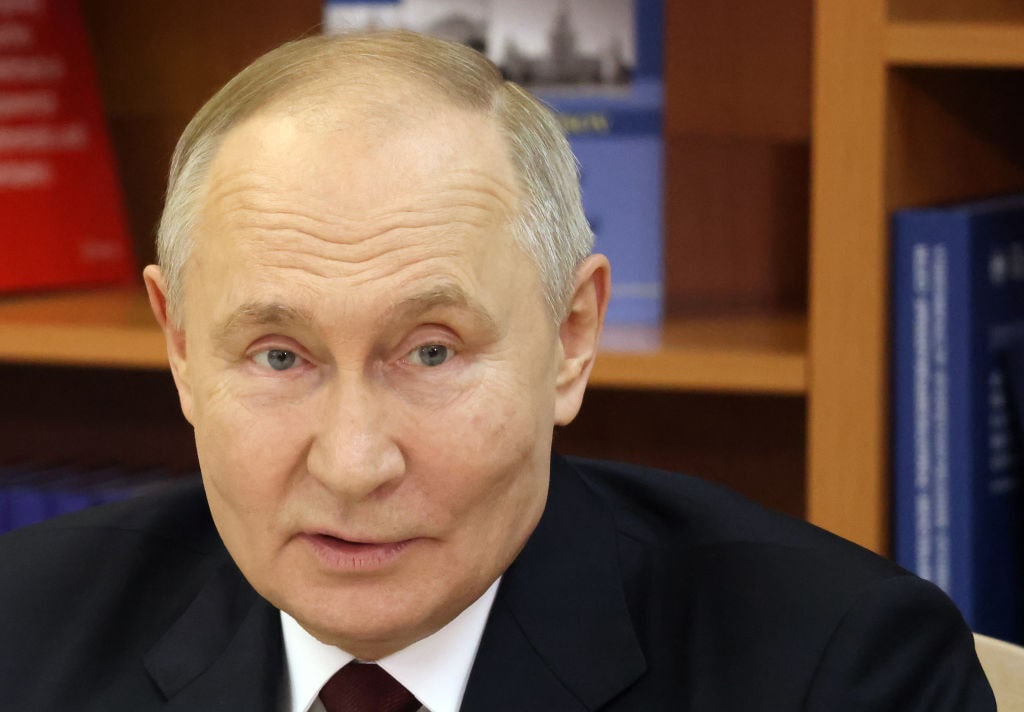Global leaders are scratching their collective heads at the flurry of foreign policy actions streaming from the White House. President Donald Trump has proposed the US buy Greenland, take over the Panama Canal, and control the rebuilding of Gaza; he’s also moving forward to achieve a negotiated end to Russia’s aggression in Ukraine, all in his first month in office. It’s vexing for NATO and European heads of state. Though the first of these actions can be dismissed as vintage Trump excess, the president’s recent call to Russian President Vladimir Putin has created consternation among world leaders.
Trump Reached Out to Putin
While Secretary of Defense Peter Hegseth was prepping the playing field during his meetings with the Ukraine Defense Contact Group (UDCG) and the NATO ministers of defense, President Trump reached out to Putin, establishing the ground rules for a negotiated end to Russia’s aggression in Ukraine. The commander-in-chief, being true to his word, would not waste time watching the carnage continue on both sides. Hegseth made the Trump administration’s position very clear. The war in Ukraine must stop. In a Truth Social post, the president was transparent in revealing what he and Putin discussed so there was no misinterpretation. The US chief executive said:
“We both agreed, we want to stop the millions of deaths taking place in the War with Russia/Ukraine. President Putin even used my very strong campaign motto of ‘COMMON SENSE.’… We agreed to work together very closely, including visiting each other’s Nations. We have also agreed to have our respective teams start negotiations immediately, and we will begin by calling President Zelenskyy of Ukraine to inform him of the conversation, something which I will be doing right now.”
Though Ukraine’s president had insisted to the Biden administration that he would resist trading land for peace, as the war has worn on, that position has become more difficult to maintain. The casualties and destruction in Ukraine are increasing; despite the heroic stand against Russian aggression, there is little evidence that Kyiv’s forces are gaining ground. In fact, in the past several months, all but a small portion of the 350 square kilometers of territory in Russia’s Kursk Oblast, which Ukrainian forces captured last August, has been ceded back to a Kremlin counterattack.
The precarious position in which Zelensky finds his country may be the reason for his new willingness to negotiate. President Trump’s proposal for Kyiv to trade continued support from the US for equal or better value in Ukraine’s rich, rare earth natural resources adds a new dimension. “Zelenskyy said Friday [Feb. 7] that he was open to a peace deal amid Trump’s request for Ukraine to supply the US with rare earth elements and other minerals in exchange for aid,” the Daily Caller reported. Kyiv’s leader has more to gain than just a quid pro quo for military support. If the US can find a mutually beneficial deal for Ukraine’s rare earth minerals, it is more likely the US, to ensure a reliable supply of those minerals, will provide the necessary arms and other support. The Trump administration will make certain the Kremlin does not interrupt the flow of those rare substances, which are critical to US cutting-edge technology. Ukraine’s natural resources are a hedge against US dependence on China for that resource.
NATO And European Leaders Get Reality Check
Nonetheless, European and NATO members were reeling from the reality check that Hegseth provided in his opening remarks at the UDCG. As the Associated Press explained:
“In just one speech by US Defense Secretary Pete Hegseth this week, the most powerful member of NATO has thrown the world’s biggest military alliance into disarray, raising troubling questions about America’s commitment to European security. Hegseth told almost 50 of Ukraine’s Western backers on Wednesday [Feb. 12] that he had joined their meeting ‘to directly and unambiguously express that stark strategic realities prevent the United States of America from being primarily focused on the security of Europe.'”
Many European leaders are concerned that peace talks between Zelensky, Putin, and Trump do not include European representatives. Over the last three years, Ukraine’s supporters have believed they have equities in whatever peace outcomes result from the negotiations that must be preserved. That may not be how the US national security team views the European leaders’ argument. Memories do not have to be long to recall that NATO and other European countries watched as Putin built up forces on the Ukraine border in 2021 to prepare for the invasion on Feb. 24, 2022. Europe was not proactive in establishing a credible bulwark against Moscow’s aggression. Additionally, Europe and NATO dribbled out support following the US lead, ensuring the conflict would be protracted.
In leading negotiations between Russians and Ukrainians, the Trump team may believe involving European representatives does not add value. Over the past three years, previous attempts by France, Germany, and others to resolve the conflict in Ukraine have proven fruitless. It appears that Trump has garnered the attention of Putin and a more agreeable Zelensky to achieve an end to the fighting. That is the president’s objective and was a campaign promise.
The views expressed are those of the author and not of any other affiliate.









